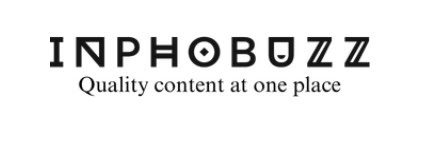Introduction
Social media has revolutionized the way people interact and communicate with each other. In the age of digitalization, online platforms have become a crucial tool for political communication, mobilization, and engagement. Today, social media is an integral part of political campaigns, and politicians worldwide use it to reach out to voters and share their views on various issues.
However, the influence of social media on politics is a highly debated topic, with some arguing that it promotes democracy and freedom of expression, while others believe it is a tool for spreading propaganda and misinformation. This essay explores the impact of social media on politics and analyzes the potential advantages and disadvantages of using online platforms in modern democracies.
Social media has transformed the way people consume and share information, including political news and opinions. Online platforms like Facebook, Twitter, and Instagram have become a primary source of political information for many people worldwide. A study conducted by the Pew Research Center revealed that 55% of American adults now use social media to access political news, with 78% of them using Facebook as their primary source of news (Perrin, 2016). The widespread use of social media has created new opportunities for political communication and mobilization, allowing political candidates to reach out to a wider audience and engage with voters on a more personal level.
The impact of social media on politics can be seen in various contexts, including electoral campaigns, political protests, and social movements. In the 2016 US Presidential election, social media played a crucial role in the campaigns of both Hillary Clinton and Donald Trump. According to a report by the New York Times, Trump's campaign spent nearly $150 million on digital advertising, with a significant portion of that money spent on Facebook and other social media platforms (Confessore, 2018).
Social media also played a critical role in mobilizing voters and spreading political messages during protests and social movements, such as the Arab Spring and the Black Lives Matter movement.
While social media has the potential to promote democracy and freedom of expression, it also has its disadvantages. One of the biggest challenges associated with social media is the spread of propaganda and misinformation. Online platforms are often used to spread fake news and conspiracy theories, which can create confusion and undermine public trust in political institutions. In the 2016 US Presidential election, Russian operatives used social media to spread false information and sow discord among American voters (Mueller, 2019). The spread of propaganda and misinformation on social media can also contribute to political polarization and exacerbate existing political divisions.
Another significant disadvantage of social media in politics is the lack of regulation and oversight.
Unlike traditional media outlets, social media platforms are not subject to the same regulations and standards of journalism. This means that anyone can create and share content on these platforms, regardless of its accuracy or ethical implications. The lack of regulation can also make it difficult for users to distinguish between legitimate and fake news, contributing to the spread of misinformation.
Conclusion
In conclusion, the impact of social media on politics is complex and multifaceted. While social media has the potential to promote democracy and freedom of expression, it also has its drawbacks. The spread of propaganda and misinformation, as well as the lack of regulation and oversight, can undermine public trust in political institutions and exacerbate political polarization. Therefore, it is crucial to recognize the potential advantages and disadvantages of using social media in politics and work towards creating a regulatory framework that promotes transparency, accountability, and ethical standards in online political communication.
References
Confessore, N. (2018). Inside the Two Years That Shook Facebook—and the World. The New York Times. Retrieved from https://www.nytimes.com/2018/11/14












0 Comments
If you have any suggestions, please comment